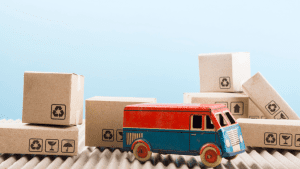Last updated on February 1st, 2024
When you start dreaming then planning and finally executing your move to Australia, or anywhere for that matter, your imagination is filled with ideals that could be far removed from reality. Many families say to me “Australia (Melbourne) is much colder than I expected,” or they are amazed that our snow ski resorts are only 2-3 hours out of the city. Australia is not totally red outback sand or bright white Bondi beach sand.
It is difficult to explain all the misconceptions you may have conjured up, and I certainly don’t want to shatter your ideal dreams. But if you hold on to them, you may find it challenging to blend in once you get here. What I suggest, instead, is developing these personality traits that could really help you settle in.
How To Succeed in Australia
Be adaptable
Have plans A, B, C and maybe even D and E if you need to. I call this “Planned adaptability”. Anyone I have found a home for will know, we always have plan A (First prize), Plan B (2nd Prize) and Plan C that we lay out a few months prior to their arrival.
There are so many hurdles during a relocation that it can feel overwhelming, but having a few choices that we can adapt to will lessen the stress levels.
Be Accepting
People are always amazed at how diverse Australia is. Here are some facts:
- 1 in 4 Australians were born overseas.
- 1 in 2 have an overseas-born parent (they are raised in a cross-cultural environment).
- Around 20% of Australians do NOT speak English at home.
- The country grows its population by 58% nett immigration and 42% naturally.
- Australia is home to the world’s oldest continuous culture, the Aboriginals.
- Australia is home to over 100 religions and 300 ethnic groups.
You are not arriving in just an Australian culture, you are arriving in a melting pot of one the most diverse populations in the world. There are so many cultures that you need to be open to accepting.
Let’s not forget the true blood Aussies too. They can be loud, swearing and have tattoos, all of which might be quite a shock to the meek and mild amongst us. You can have a look at an interview I had with Hendrika Jooste, migration coach, about Australian Culture.
Related:
Learn How to Manage Stress
Let me start off here with a warning: most stress comes from culture shock and there is NO avoiding culture shock. Understand it, expect it and look out for the signs. That way it will not catch you off guard. Everybody will experience some form of it; you are not immune.
Secondly, don’t underestimate jet lag. When I jump on an online consultation, without a doubt I am presented with a list of what people want to do in their first week, perhaps not in a timely order, but there are some pretty big goals kick. Trust me, you need to make some pretty impressive decisions when you arrive. A clear head is the best medicine.
Your learning curve is accelerated. Think about this: In your “home” country, how often do you read a billboard, the back of food can or the street signs? Your jet-lagged head is trying to comprehend all this. In itself, this is tiring. You are also driving around an unfamiliar suburb, maybe lost, quite hungry, brain fog and then need to decide if the school tour you are on is the right one for your children.
Be kind to yourself those first few days, plan tasks that do not require major decisions or work with a relocation consultant who has a holistic view of your needs and can help you navigate the to-do list in a constructive, timely and cost-effect manner.
Practise Effective Communication
We all know the importance of connecting. In order to connect, we need to make a verbal connection. From asking for directions to the importance of a job interview, there is nothing more important. Without proper communication, not only can we not express ourselves, but we can also struggle to be understood.
More often than most, when we are not understood, we pull out the discrimination card. Sorry, but I hear migrants from all over the world say that.
Recently, I had a migrant say to me, “Australian English is a “whole ‘nother language.” Yes, Australians speak fast, they shorten words and use local colloquialisms that can be confusing, so if you don’t have a good command of English prior to arrival, then you need to sharpen your skills quickly.
Business communication in any language is very different from “kitchen table” English, which can also be very different to school-taught English.
Nick Noorani, Canadian Migrant entrepreneur and founder of Immigrant Networks, gives this advice:
If you are going to be looking for work, then invest in yourself, if you don’t invest in yourself then how can you expect a company to invest in you?
Nick Noorani Tweet
Have Confidence
I phoned a client last week “You have been approved; you got the house!” She was amazed, “Really? They chose US out of all those people at the inspection?” I cannot stress enough how important confidence is.
Earlier I spoke of stereotypes. I am willing to bet (Australians bet on everything!) that the typical Aussie stereotype you have in your head is one of “confidence to the extent of being cocky.” Right? Aussies are seen as being quite full of themselves.
However, you, the new arrival, do not need to arrive here with your hat in your hand. There are many, many attributes you bring with you, the trick is perhaps to know when to pull them out. Know when it is appropriate to be confident and when to watch from the sidelines, but never feel like you are less. Please.
While we are talking about confidence, I want to remind you that yes, you are a risk-taker.
Some readers might be surprised and question this. Have you not just made the decision to move across the globe to a new country? Perhaps one you have not even visited? Acknowledge and embrace this new superpower. Apply for that job. Put your hand up, go first or ask a question. Don’t be afraid to take risks. It’s the only way to help you grow. As Neil Gaiman puts it
"If you dare nothing, then when the day is over, nothing is all you will have gained."
Neil Gaiman Tweet
The Best Way To Build Confidence
I find one of the best ways to build your confidence and get an idea of local etiquette is to volunteer.
Why? Because it
- gives you the local experience
- builds your network
- teaches you local etiquette and “on the ground” learnings
- harnesses your interview skills and role-play business etiquette
- looks great on your resume that you, as a new arrival, is already giving back
Most of all, it builds your confidence. You are gaining Australian life skills in a more relaxed environment.
We have written many blogs and interviewed many people from recruiters to cross-cultural trainers all of whom you could add to this list. I encourage you to read as much as you can, ask questions, connect with people. Australians, like most other nations, are happy to talk about themselves and to help others, so don’t be shy. Reach out.
If You Need Help
Personnel Relocations is your one-stop-shop for every relocation need. We understand that every relocation is different and each one has different goals.
To contribute to your settling in Australia, we have alliances with experts such as relocation mentors, life coaches, cross-culture trainers, baby equipment hire, business communication specialists, local and international furniture removals, interior designers, decluttering, unpacking and setting up trades services who can help with specific needs.
It is not unusual for Personnel Relocations to handle the full suite of relocation needs, all from just one call.









